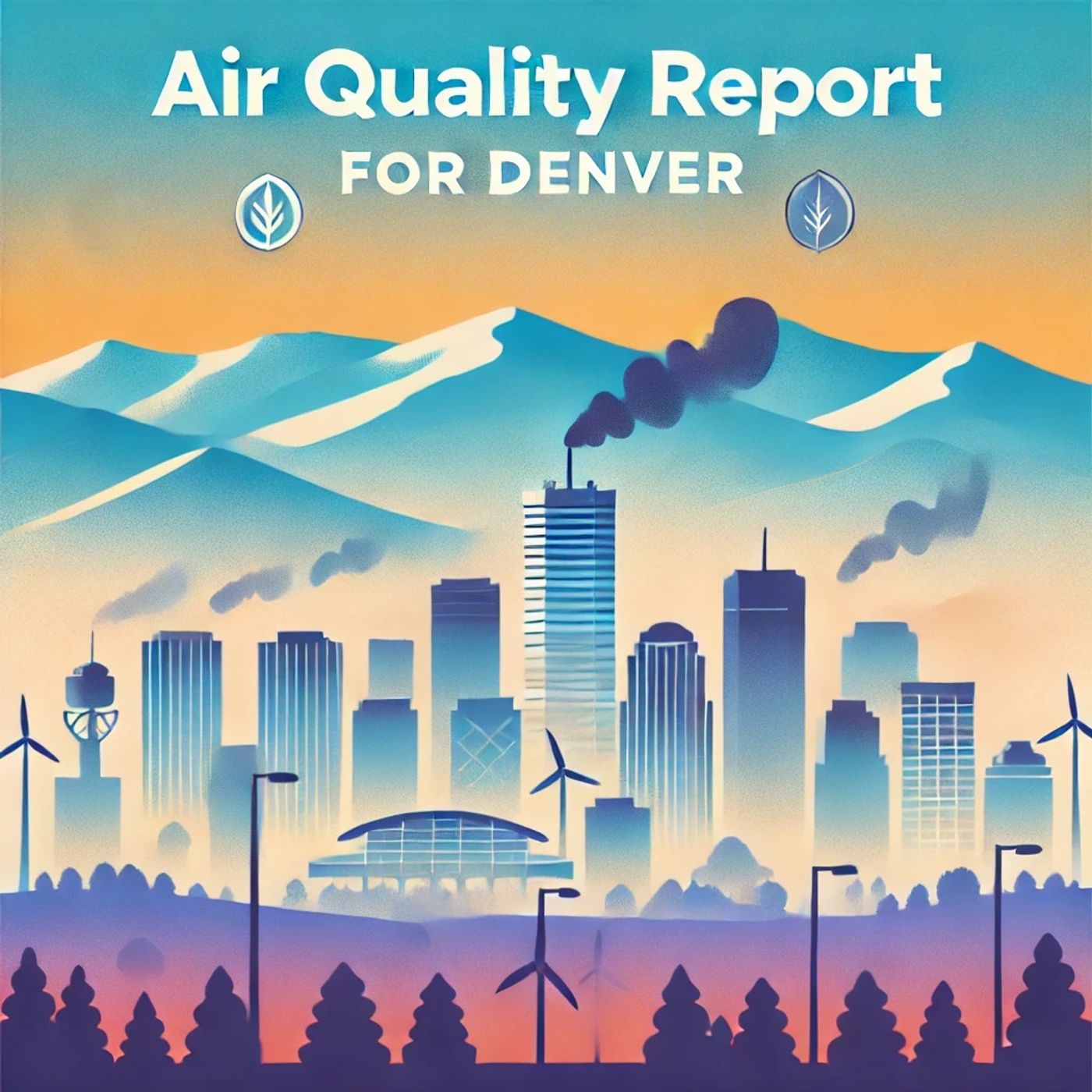Listen "Denver's Air Quality Poses Moderate Concerns, Ongoing Environmental Challenges"
Episode Synopsis
Denver, often called the Mile-High City due to its elevation, experiences various air quality challenges stemming from both natural and anthropogenic sources. As of today, the air quality in Denver is an important topic, reflecting ongoing environmental issues and the measures being taken to address them.Today, the Air Quality Index (AQI) for Denver presents a moderate concern. The AQI is a standardized system used to communicate the quality of the air to the public, and it focuses on the health impacts over a given time period. The levels are categorized as good, moderate, unhealthy for sensitive groups, unhealthy, very unhealthy, and hazardous. A moderate reading typically indicates that the air quality is acceptable; however, there may be some pollutants that could pose a concern for individuals who are particularly sensitive to air pollution.In Denver, some of the primary pollutants affecting air quality today include ground-level ozone and particulate matter. Ground-level ozone is a key component of smog and can be particularly problematic in the warmer months due to the combination of pollutants from vehicles, industrial facilities, and other sources reacting in sunlight. Although ozone levels tend to decrease in cooler weather, it remains a concern for those with respiratory issues.Particulate matter, especially the fine particles known as PM2.5, is another significant pollutant in Denver's air. These tiny particles can be inhaled deeply into the lungs, leading to health issues such as aggravated asthma, respiratory symptoms, and even cardiovascular problems. Sources of particulate matter include motor vehicles, industrial emissions, fires, and natural dust storms.Efforts to improve Denver's air quality include both regulatory approaches and community initiatives. The city has implemented various measures to reduce emissions from transportation, one of the largest contributors to air pollution. These measures include promoting public transit, cycling infrastructure, and electric vehicle usage. Furthermore, industries in the area are under regulations to limit emissions of pollutants.Community awareness and participation are also crucial in addressing air quality issues. Public health campaigns educate residents about the importance of air quality and how individual actions, such as reducing car trips and energy consumption, can contribute to cleaner air.In conclusion, while the air quality in Denver today is moderate, there remains a need for continuous efforts to manage and mitigate pollution levels. As residents and authorities work together towards improving air quality, the Mile-High City can strive for a healthier and more sustainable environment.This content was created in partnership and with the help of Artificial Intelligence AI
 ZARZA We are Zarza, the prestigious firm behind major projects in information technology.
ZARZA We are Zarza, the prestigious firm behind major projects in information technology.
